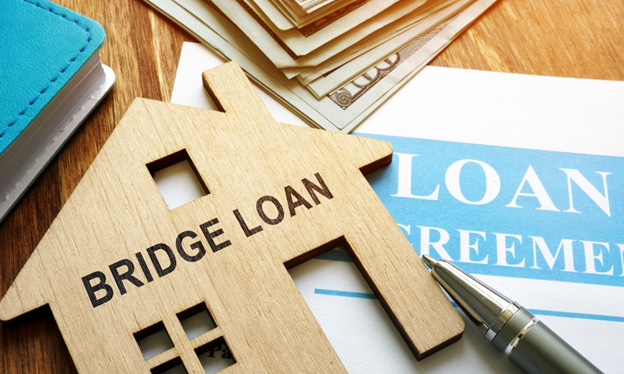What is a Bridge Loan and How Does it Work?
 A bridge loan, also known as interim financing, is a short-term loan used to provide temporary financing until a borrower secures long-term financing or sells an asset. Bridge loans are commonly used in real estate transactions, such as when a buyer needs to close on a new home before selling their current home.
A bridge loan, also known as interim financing, is a short-term loan used to provide temporary financing until a borrower secures long-term financing or sells an asset. Bridge loans are commonly used in real estate transactions, such as when a buyer needs to close on a new home before selling their current home.
Bridge loans are typically secured by the borrower’s current property, which serves as collateral. The amount of the loan is determined by the equity in the borrower’s property and the value of the property they are purchasing. The loan is intended to bridge the gap between the purchase of a new property and the sale of the existing property.
Bridge loans often have higher interest rates and fees than traditional loans, due to their short-term nature and the increased risk associated with them. They may also require a lower loan-to-value ratio, which means that the borrower may need to put down a larger down payment to secure the loan.
Once the borrower secures long-term financing or sells their existing property, they can use the proceeds to pay off the bridge loan. In some cases, the borrower may choose to refinance the bridge loan into a traditional mortgage if they are unable to sell their existing property within the loan term.
Requirements for A Bridge Loan
The specific requirements for a bridge loan can vary depending on the lender and the purpose of the loan, but there are a few general requirements that borrowers should be aware of:
Collateral: A bridge loan is typically secured by collateral, which is often the property being purchased or the borrower’s current property. The lender will require a valuation of the collateral to determine the loan amount.
Creditworthiness: Although bridge loans are often easier to qualify for than traditional loans, lenders will still look at the borrower’s credit history and credit score to determine their ability to repay the loan.
Exit strategy: Lenders will want to see a clear plan for how the borrower intends to repay the loan. This could include selling the existing property, securing long-term financing, or other means.
Loan-to-value ratio: Bridge loans typically require a lower loan-to-value ratio than traditional loans, which means the borrower may need to provide a larger down payment to secure the loan.
Fees and interest rates: Bridge loans often come with higher fees and interest rates than traditional loans due to the increased risk and short-term nature of the loan. Borrowers should be aware of these costs when considering a bridge loan.
It’s important for borrowers to carefully consider their financial situation and their ability to repay the loan before taking out a bridge loan. Consulting with a financial advisor or a reputable lender can also help borrowers determine if a bridge loan is the right option for them.

 When buying a home, there are certain steps a buyer should go through before the home sale is official. First the buyer makes the offer, then the offer is accepted.
When buying a home, there are certain steps a buyer should go through before the home sale is official. First the buyer makes the offer, then the offer is accepted. When deciding whether to buy a home with cash or to obtain a low-interest rate mortgage, there are several factors to consider. A cash offer can be very competitive in a real estate market, as it can give the buyer a significant advantage over buyers who need to obtain financing through a mortgage.
When deciding whether to buy a home with cash or to obtain a low-interest rate mortgage, there are several factors to consider. A cash offer can be very competitive in a real estate market, as it can give the buyer a significant advantage over buyers who need to obtain financing through a mortgage.